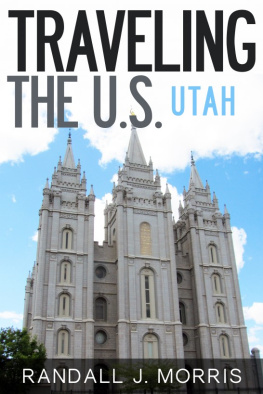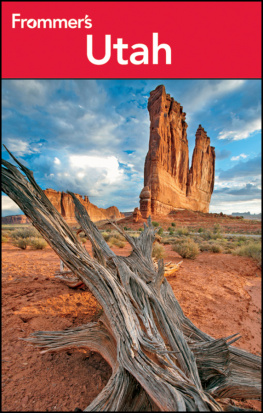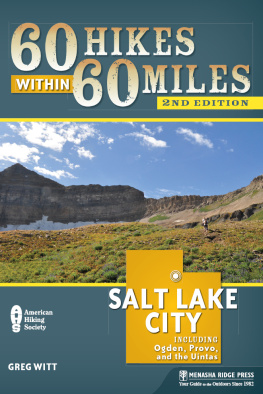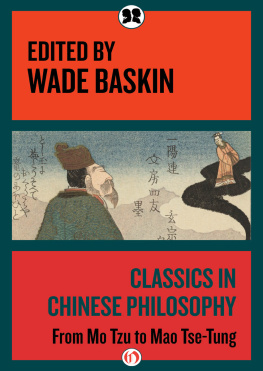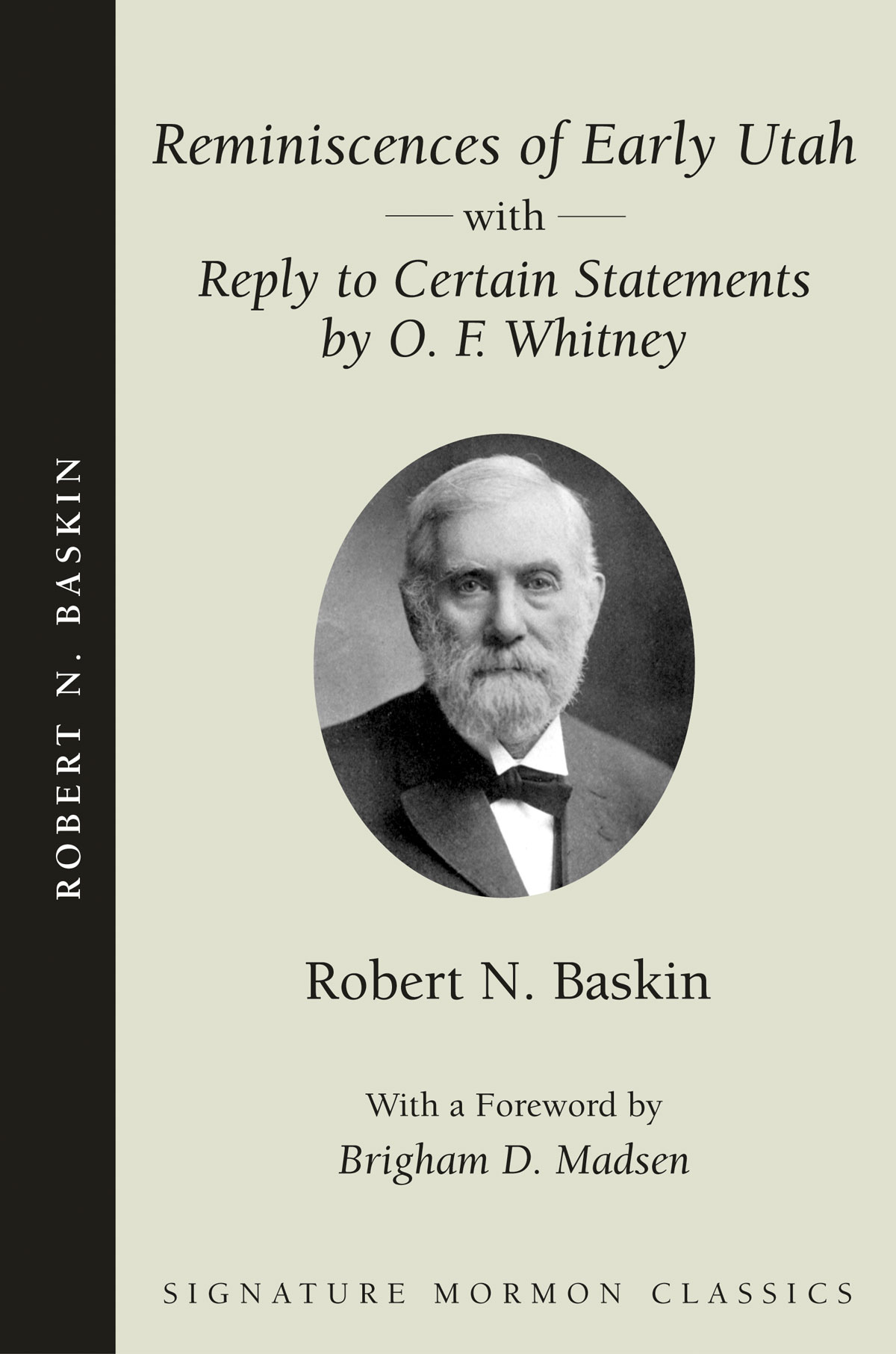SIGNATURE MORMON CLASSICS
Robert N. Baskin
Reminiscences of Early Utah
with
Reply to Certain Statements
by O. F. Whitney
foreword by
Brigham D. Madsen
SIGNATURE BOOKS SALT LAKE CITY 2006
A NOTE ON THE TEXT
Except for the front matter and foreword, this Signature Mormon Classics edition is an exact reprint of Reminiscences of Early Utah, published in 1914 by the Tribune-Reporter Printer Company, Salt Lake City, Utah, and Reply to Certain Statements by O. F. Whitney in His History of Utah, published in 1916 by Lakeside Printing Company, Salt Lake City. Both works were authored by Robert Newton Baskin, who is noted on the title page to Reminiscences as being an Ex-Chief Justice of the Supreme Court of Utah.
Reminiscences of Early Utah, Copyright R. N. Baskin, 1914
Reply to Certain Statements by O. F. Whitney, Copyright R. N. Baskin, 1916
Signature Books Classics reprint edition with a foreword by Brigham D. Madsen. Copyright Signature Books, 2006. Signature Books is a registered trademark of Signature Books Publishing, LLC.
All rights reserved. www.signaturebooks.com
Library of Congress Cataloging-in-Publication Data
Baskin, R. N. (Robert Newton), b. 1835.
Reminiscences of early Utah; with, Reply to certain statements by O. F. Whitney/ by Robert N. Baskin; foreword by Brigham D. Madsen.
p. cm. (Signature Mormon classics)
First work originally published: Salt Lake City: Tribune Reporter, 1914; 2nd work originally published: Salt Lake City: Lakeside Print Co., 1916.
Includes bibliographical references and index.
ISBN 10: 1-56085-193-7 (pbk.)
ISBN 13: 978-1-56085-193-6 (pbk.)
UtahHistory19th century. 2. MormonsUtah History19th century. 3. Frontier and pioneer lifeUtah.
4. Whitney, Orson F. (Orson Ferguson), 1855-1931. Popular history of Utah. I. Madsen, Brigham D. II. Baskin, R. N. (Robert Newton), b. 1835. Reply to certain statements by O. F. Whitney.
Title. IV. Title: Reply to certain statements by O. F. Whitney.
F826.B32 2006 979.0202-dc22
2006045811
SIGNATURE MORMON CLASSICS
Drawing on a rich literary heritage, Signature Books is pleased to make available a new series of classic Mormon works reprinted with specially commissioned introductions. Each book has left an indelible impression on the LDS Church and its members, while also having influenced non-Mormon perceptions of the Saints. The authors, whether inside or outside observers, occupy an important place in the development of LDS culture and identity. The re-issue of their works offers readers today an opportunity to better appreciate the origins and growth of a major religious and social movement.
Contents
FOREWORD
Brigham D. Madsen
On a glorious first of June 1901, Salt Lake City was awakened at dawn by a 100-gun salute, followed by a performance by the old Nauvoo Legion martial band. In the afternoon, church and government leaders gathered at the Saltair resort to honor the hundredth-year birthday of Brigham Young, the frontier dynamo who had dominated the American West for three decades. Three of his widows attended, including Amelia Folsom, his last favorite wife, and one of his former slaves, Uncle Green Flake, as well as Governor Heber M. Wells and leaders of the Church of Jesus Christ of Latter-day Saints. Bishop Orson F. Whitney gave the opening prayer, followed by a xylophone solo from Professor Adelbert Beesley. Messrs. Clawson and Margetts entertained the throng with a comic duet. David McKenzie, who had served time in 1859 for counterfeiting warrants on the Young estate, was the master of ceremonies.
Governor Wells spoke first, followed by Professor James E. Talmage and Apostle Heber J. Grant. However, the most remarkable speech came, not from one of the late LDS prophets most devoted disciples, but instead from Utah Supreme Court Justice Robert N. Baskin, who Apostle George Q. Cannon had once denounced as one of the worst enemies the people had. Baskin said the invitation showed how much conditions in Utah had changed and that he was glad of it,
Over the next dozen years, this era of good feeling between the states majority and minority populations came to an end, the conflict between church and state re-igniting and intensifying. Baskin himself found good reason to rethink his position in light of the fact that Mormon historians asserted themselves with an extremely partisan approach to the states historya trend that would persist for half a century. As Baskin explained in the preface to Reminiscences of Early Utah, his book would expose the glaringly false statements in [Orson F.] Whitneys History of Utah and defend federal officials in the territory who had been besmirched by him. To understand the highly charged atmosphere that existed between the strongly sectarian Whitney and gentile Baskin, it is essential to examine their backgrounds and the motivations that excited each man.
Robert Newton Baskin was born on December 20, 1837, in Hillsboro, Ohio. He attended Salem Academy, near Chillicothe, Ohio, and then began his study of law with the firm of James H. Thompson in Salem, Ohio. After two years, he left to pursue formal legal education at Harvard University, from which he graduated and then returned home to begin a law partnership in Salem with a Colonel Collins. In 1865, just after the Civil War, Baskin left Ohio and, on his way to California, stopped in Salt Lake City.
George A. Townsend, a reporter for the Cincinnati Commercial, wrote from the Mormon capital in 1871 that Baskin was rumored to have shot somebody in Ohio. Townsends reports, which were collected in a pamphlet titled The Mormon Trials at Salt Lake City, had nothing good to say about any non-Mormons in Utah but affectionately described Porter Rockwell, Brigham Youngs notorious bodyguard, as a fat, curly-haired, good-natured chap. Townsend dedicated his pamphlet to Youngs son-in-law William H. Hooper, territorial delegate to Congress, suggesting the reporter probably benefitted from the tens of thousands of dollars the Mormon Church spent to buy favorable press between 1858 and 1896. Much of the most colorful information we have about the young gentile attorney from Ohio comes from Townsends unsympathetic reports.
The Salt Lake Tribunes later biographical sketch said nothing about Baskins alleged career as a gunslinger, noting merely that after a few days in Salt Lake City he met Thomas Hearst, son of celebrated attorney William Hearst. With Hearst as his guide, Baskin visited the Little Cottonwood mining district, saw the possibility of making a fortune in minerals, and decided to cast his lot in Utah. He established a law office in Salt Lake City and began the study of territorial statutes, which led to his role as a critic and denouncer of the economic and political control exercised by the LDS Churchs leadership. For the next thirty years, he held a prominent position with the areas non-Mormon population as they battled against polygamy and political and economic hegemony and for more equality for the minority population.
Townsend described Baskin (consistently misspelling his name as Baskins) as a lean, lank, rather dirty and frowsy, red-headed young man, but a lawyer of shrewdness and coolness, and inflamed against Mormonism. He added that the lawyer got his redhot temper from his hair. Baskin did have a temper, as demonstrated in an altercation he had with the territorial Associate Justice, C. M. Hawley, in 1871. Townsends description of the fracas deserves quoting. Hawley presented Baskin with a ruling that was not to the attorneys liking, and
Baskins threw the paper on the floor, and ground it with his boot-heel into an inoffensive tobacco quid. The Judge, who is slender, conscious, and respects himself and his rulings, told Mr. Baskins he would fine him. Go ahead with your fine, said Baskins, youre of no account.



